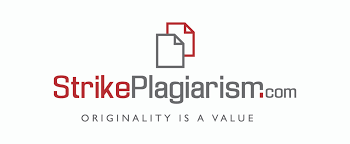Contemporary Islamic Economic Thinking: A Sharia-Based Work Culture Reconstruction
 Abstract views: 320
,
Abstract views: 320
,
 PDF downloads: 281
PDF downloads: 281
 Pemikiran Ekonomi Islam Kontemporer Rekonstruksi Budaya Kerja Berbasis Syariah downloads: 0
Pemikiran Ekonomi Islam Kontemporer Rekonstruksi Budaya Kerja Berbasis Syariah downloads: 0
Abstract
The world has three existing economic systems, derived from human thinking product (science) and God’s word. The first leads to secular capitalist and soci-alist system, and the second leads to a transcendent sharia-based economy. In reality, the secular system is not able to provide a fair welfare. In fact, it often triggers human problems. In this matter, the only system able to provide solution is a system derived from God’s word. However, it is important to reveal and im-plement sharia thought from God’s word to make society knowing, under-standing, and applying it in their life. The study is a library research which data are collected using documentary method. The result of the study shows that al-Qardlâwî’s thinking is purely based on God’s word using mu’âmalah, fiqh, and akhlâq approach. Meanwhile, Chapra tries to cover how the work practice of con-ventional economy and compare it to Islamic system, and tries to offer solution using scientific approach and Islamic values. The relevance of both thinkings is that they are able to provide Islamic values in the economic development, which is lack of spiritual content.
Copyright (c) 2016 by KARSA. All right reserved
Downloads
References
Ahmad, Khurshid. Introduction to Islam dan Tantangan Ekonomi, by Umer Chapra, trans. Ikhwan Abidin Basri. Jakarta: Gema Insani Press cooperates with Tazkia Institute, 2000.
Ahmad, Mustaq. Etika Bisnis dalam Islam. Trans. Samson Rahman. Jakarta: Pustaka Al-Kautsar, 2001.
de George, Richard T. Business Ethics, fifth edition. London: Printice Hall In-ternational, 1999.
Djakfar, Muhammad. Agama, Etika, dan Ekonomi. Malang: UIN-Maliki Press, 2014.
Djakfar, Muhammad. Wacana Teologi Ekonomi Membumikan Titah Langit di Ranah Bisnis dalam Era Globa-lisasi, revised edition. Malang: UIN-Maliki Press, 2015.
Forum Ekonomi Syariah. “Dr. M. Umer Chapra: Tokoh Ekonomi Islam Kontemporer”. Accessed on 28 April 2010. http://forumekonomisyariah45.blogspot.co.id/2013/05/dr-m-umer-chapra-tokoh-ekonomi-islam.html
Karim, Adiwarman A. Ekonomi Mikro Islami. Jakarta: IIIT, 2001.
Koentjaraningrat. Kebudayaan, Mentalitas, dan Pembangunan. Jakarta: PT. Gramedia, 1985.
Kuntowijoyo. Budaya & Masyarakat, se-cond edition. Jakarta: PT. Tiara Wacana Yogya, 1999.
Mahasin, Aswab Mahasin, et. al. Ruh Islam dalam Budaya Bangsa Aneka Budaya di Jawa. Jakarta: Yayasan Festival Istiqlal, 1996.
Mannan. M. Abdul. Teori dan Praktik Eko-nomi Islam. Translated by M. Nastangin. Yogyakarta: PT. Dana Bhakti Wakaf, 1995.
Pusat Pengkajian dan Pengembangan Ekonomi Islam (P3EI) UII Yog-yakarta cooperated with Bank Indonesia. Ekonomi Islam. Jakarta: PT. RajaGrafindo Persada, 2009.
Qardhawi, Yusuf. Kenanganku Bersama Ikhwanul Muslimin. Translated by M. Lili Nur Aulia. Jakarta: Aulia Publisher, 2003.
Qardhawi, Yusuf. Peran Nilai dan Moral dalam Perekonomian Islam. Tran-slated by Didin Hafidhuddin. Jakarta: Robbani Press, 1997.
Rahman, Afzalur. Doktrin Ekonomi Islam. Translated H. M. Sonhadji, et. al. Yogyakarta: PT. Dana Bhakti Wa-kaf, 1995.
Rivai, Veithzal and Antoni Nizar Usman. Islamic Economics & Finance Ekonomi dan Keuangan Islam Bukan Alternatif, tetapi Solusi. Jakarta: PT. Gramedia Pustaka Utama, 2012.
Saefuddin, Ahmad M. Ekonomi Masya-rakat dalam Pespektif Islam. Jakar-ta: Rajawali Pers, 1987.
Sam, H.M. Ichwan, et. al., eds., Himpunan Fatwa Dewan Syariah Nasional MUI, Volume 1 & 2. Jakarta: DSN-MUI, 2010.
Wikipedia Bahasa Indonesia. “M. Umer Chapra”. Accessed on 28 April 2010 http//wikipediabahasaindonesiachapra
Wikipedia. “Chhapra”. Accessed on 28 April 2010 http://id.wikipedia.org/wiki/M._Umer_Chapra
Wikipedia. “Yusuf al-Qaradhawi”. Accessed on October,2003. www.qaradawi.com
Zed, Mestika. Metode Penelitian Pustak. Jakarta: Yayasan Obor Indonesia, 2008.
The journal operates an Open Access policy under a Creative Commons Non-Commercial Share-Alike license. Authors who publish with this journal agree to the following terms:
- Authors retain copyright and grant the journal right of first publication with the work simultaneously licensed under a Creative Commons Attribution License that allows others to share the work with an acknowledgement of the work's authorship and initial publication in this journal.
- Authors are able to enter into separate, additional contractual arrangements for the non-exclusive distribution of the journal's published version of the work (e.g., post it to an institutional repository or publish it in a book), with an acknowledgement of its initial publication in this journal.
- Authors are permitted and encouraged to post their work online (e.g., in institutional repositories or on their website) prior to and during the submission process, as it can lead to productive exchanges, as well as earlier and greater citation of published work.



















